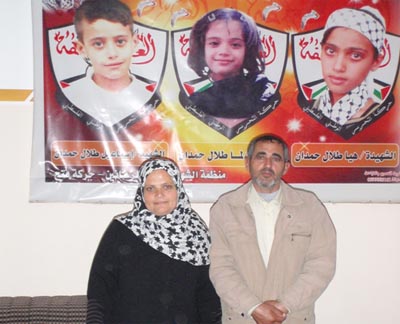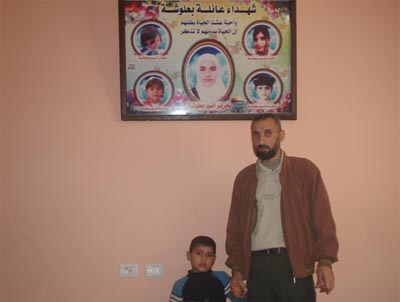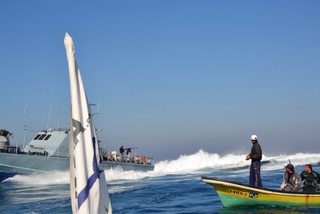Tag: Gaza
-
30 December 2008: The Hamdan family
30 December 2011 | Palestinian Center for Human Rights “When I wake in the morning the first thing I do is remember my children. I come and sit outside and picture them where they used to play. I don’t want to go out and interact with other people anymore. I largely stay inside the home”…
-
29 December 2008: Balousha family
29 December 2011 | Palestinian Center for Human Rights “I miss them all the time, sometimes I even go to look for one of them in the house in the split second before I remember they were killed” At around 00:00 on the 29 December 2008 an Israeli aircraft attacked the Imad Akel Mosque situated…
-
Israeli navy attacks international observers, injures Palestinian, on monitoring boat in Gaza waters
28 December 2011 | Civil Peace Service Gaza At 10:55 am, an Israeli naval warship attacked the international observers and Palestinian captain of the Civil Peace Service Gaza (CPSGAZA) boat Oliva, injuring its captain in an apparent attempt to capsize it. “The Israeli navy passed near us and the fishermen, and started to go around…



